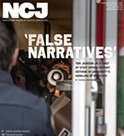[
{
"name": "Top Stories Video Pair",
"insertPoint": "7",
"component": "17087298",
"parentWrapperClass": "fdn-ads-inline-content-block",
"requiredCountToDisplay": "1"
}
]
Last week, I presented arguments supporting the anti-Stratfordian case, that Stratford's "Shakspere" wasn't the sublime writer William Shakespeare. If the man from Stratford didn't write the Shakespearean canon, who did?
Originally, Francis Bacon was considered the prime candidate. Later contenders included: Christopher Marlowe; Henry Neville; Mary Sidney Herbert, Countess of Pembroke; William Stanley, sixth Earl of Derby and many more. Or an amalgam of these, writing under a single pseudonym. However, the candidate most frequently cited is the 17th Earl of Oxford, Edward de Vere, someone with a motivation for writing under a pseudonym and with the right background: classical education (attended Cambridge), knowledge of the law (studied at Grays Inn law courts), worldly (traveled extensively in Italy and France), confidant of Queen Elizabeth (whose chief advisor was de Vere's father-in-law, William Cecil Burghley). He was also a good writer, "the most excellent" of Elizabeth's courtier poets. De Vere's motivation for anonymity is obvious. Take the character of Hamlet's Polonius, chief advisor in the Danish court, portrayed as a garrulous, bumbling old man — clearly, to most Shakespeare scholars, modeled on Burghley himself. In those days, to openly mock the crown or government was considered treason, punishable by maiming, imprisonment, or death. The main strike against de Vere is that he died in 1604, so that if he was Shakespeare, several plays had to have been published posthumously, edited, perhaps, by someone in the know — Mary Sidney?
If de Vere, or someone else, was posing as Shakespeare, why that particular name? One possibility is that the Stratford man, who was involved in the London theater scene as an occasional actor and as an investor in the Globe and Blackfriars theaters, was paid to act as the face for a playwright who wished to remain anonymous. Or, more likely, Stratford's Shakspere had nothing to do with it. Shakespeare, or sometimes Shake-speare, may be a play on the goddess Pallas Athena, who sprang from the head of Zeus "shaking a sharp spear." William, meanwhile, is cognate with the Old Dutch for "golden helmet," which Athena is often portrayed as wearing. Not incidentally, it was common practice in that time to indicate pseudonymous works with a hyphen, so Shake-speare would then be seen alongside such giveaways as Tom Tell-troth and Simon Smell-knave.
To legitimize this debate, veteran Shakespearean actors Sirs Derek Jacobi and Mark Rylance, among others, sponsored a "Declaration of Reasonable Doubt about the Identity of William Shakespeare," which you can read at doubtaboutwill.org. Jacobi and Rylance are hardly the first to question the authorship, being preceded by, among others, Mark Twain, Henry James, Walt Whitman, Ralph Waldo Emerson, Orson Welles, Sir John Gielgud, Sigmund Freud, U.S. Supreme Court Justice John Paul Stevens, historian David McCullough and physicist Roger Penrose — none of whom, I trust you'll agree, were or are lacking in intelligence.
I'll leave the final word to Nobel Prize-winning novelist John Galsworthy, who declared the original proposal that Edward de Vere was Shakespeare (in a 1920 book by English schoolteacher John Looney) to be "the best detective story I've ever read." Which is a fitting tag-line for the entire attempt to figure out who wrote Shakespeare. We'll probably never know, but damn, it's fun to try.
Barry Evans (he/him, [email protected]) votes for a long shot: writer-spy Christopher (Kit) Marlowe who, after faking his own death in 1593, wrote the "Shakespeare" plays from Italy.
Speaking of Shakespeare
-

Laughing in Shakespeare's Shadow
Mar 31, 2022 - More »
Comments (3)
Showing 1-3 of 3
more from the author
-
The Other Evolutionist
- Jul 25, 2024
-
Rise and Fall of the "Sunshine Vitamin," Part Two
- Jul 11, 2024
-
Rise and Fall of the 'Sunshine Vitamin,' Part One
- Jul 4, 2024
- More »

































